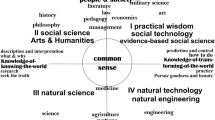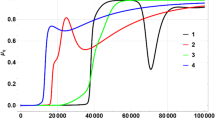Abstract
PROF. H. DINGLE'S review in Nature of May 1, p. 791, of “Essays on the Social History of Science” contains two serious misrepresentations of fact which it is my duty to set right as chairman of the Commission instrumental in the production of the book. After quoting a sentence from the introduction, in which I presented as my personal view a definite conception of the fundamental trend of social evolution and the position of science in it, Prof. Dingle suggests that “the editor's team includes a goodly company of brave men prepared to follow the trumpet-call wherever it leads them”. Certainly Prof. Dingle would not have written this if he had not somehow overlooked the very text from which he extracts a fragment. I write, in fact, on page 10, just before coming to the above-mentioned statement: “It goes without saying that the contributors have been left entirely free to choose their subjects and to decide upon the best ways of treating them. The Commission has no preconceived views to advocate. As a matter of fact, there is little probability that unanimity of agreement would be found among its members on many of the points made by the contributors to this volume. The Commission acts on the view—which is a vital requirement for fruitful scientific enquiry—that the truth can only impose itself by its own strength and that the greatest disservice which can be done to it is to try to force evidence into any rigid system”. Further, I must beg leave to reproduce the passage immediately following the one quoted by Prof. Dingle: “I regret that so many prominent scholars are too timid to accept this general inference as a guidance in their studies, because I feel that they are thereby depriving themselves of a fruitful instrument of research. However, it is only by further careful and dispassionate analysis of more and more evidence that this issue can be decided. Thus it is on this task of the detailed analysis of concrete cases of social and scientific development that our efforts should be concentrated at the present time. At this stage the general outlook of the investigator matters comparatively little provided he controls it sufficiently to prevent it from obscuring his judgment.”
This is a preview of subscription content, access via your institution
Access options
Subscribe to this journal
Receive 51 print issues and online access
$199.00 per year
only $3.90 per issue
Buy this article
- Purchase on SpringerLink
- Instant access to full article PDF
Prices may be subject to local taxes which are calculated during checkout
Similar content being viewed by others
Author information
Authors and Affiliations
Rights and permissions
About this article
Cite this article
ROSENFELD, L. “Social Conditions and the Development of Science”. Nature 173, 1102 (1954). https://doi.org/10.1038/1731102a0
Issue date:
DOI: https://doi.org/10.1038/1731102a0



